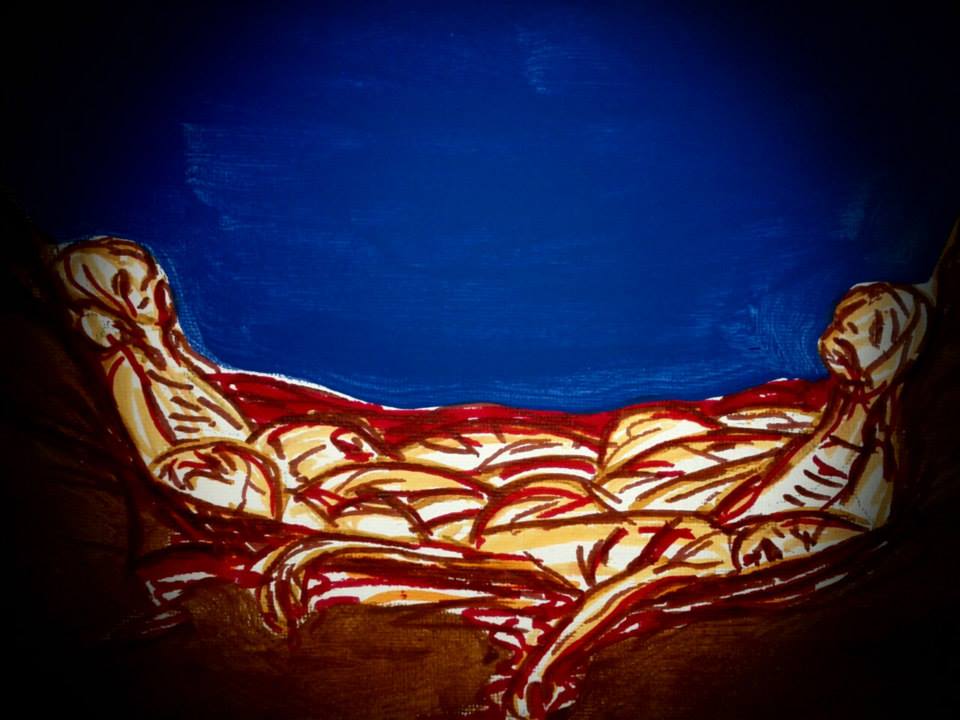The third week of the UN Human Rights Council's 25th session begins today with palpable sense of renewed impetus towards the need for concrete action. The second draft of the resolution calling for accountability in Sri Lanka has evidently been strengthened. The High Commissioner's office is called upon to establish a stand alone investigative mechanism. The strengthening of the text is without doubt welcome however ambiguity remains around the core issue of an international investigation into mass wartime atrocities. As the continued calls from international and Tamil voices for a Commission of Inquiry highlight, questions remain over the nature and scope of the investigation envisaged in this latest text - will it have the necessary mandate, sufficient resources and right direction to go beyond mere fact-finding but gather evidence towards a judicial process and prosecutions.
Nothing underscores the need for a robust investigation than the Sri Lankan state's defiant response to international attempts to bring it to heel. Sri Lanka cares nothing for international norms if it perceives these to be at odds with its sovereignty and, ultimately, its island wide imposition of Sinhala-Buddhist order. The events of 2009 stand as irrefutable evidence of this, whilst the detention last week of a prominent disappearances campaigner and her 13 year old daughter serves as a timely and deeply concerning reminder. The pointed audacity of this deliberately timed act is both a response to the international community and a sinister warning to activists currently in Geneva campaigning for an international investigation. Even at the time of the first resolution on Sri Lanka in 2012, Sri Lanka's response was to seek to silence through intimidation within the Palais itself those Tamils campaigning for justice. This year, as international pressure rises, the Sri Lankan state's rhetoric, particularly against activists which it labels as 'terrorists' or 'traitors', promises murderous revenge. That the arrests of Balendran Jeyakumari and Vipoosika came within hours of a fellow campaigner, Ananthi Sasitharan, calling in the Palais for an international inquiry into genocide, is no coincidence.
As such, the arrests highlight key weaknesses in the current draft text. Not only in its obvious inability to provide immediate protection to Tamils in the North-East from state oppression, but also in its inability to ensure an environment conducive to an independent investigation. Put simply, a meaningful investigation, and evidence gathering, against state atrocities and abuses cannot take place so long as witnesses live in fear of reprisals. The lack of witness protection and the Prevention of Terrorism Act under which diverse enemies of the state are arrested, is a clear impediment. The domineering military occupation ofTamil areas that goes beyond the visible markers of checkpoints and high security zones to all pervasive surveillance and state-backed paramilitary violence, is another. The presence of the very military, which lest it be forgotten is an almost entirely ethnically Sinhalese force, that stands principally accused of the 2009 mass atrocities, and continuing 'disappearances, torture, sexual violence and murder, makes impossible the search for justice. The military's pervasive presence in all areas of Tamil public life, not only curtails the socio-economic development of the North-East, but prevents Tamils from defending their day to day human rights, calling for justice and accountability and seeking their political aspirations. Indeed, that is the very purpose of the military's domineering presence. In short, therefore, robust witness protection and demilitarisation of the North-East are key to the credible pursuit of accountability.
As the Council's current session reaches a midway point today, it is worth recalling what is central to the campaign for accountability and justice since 2009: the mass slaughter of tens of thousands of Tamils - which the UN panel of experts described as 'a grave assault on the entire regime of international law designed to protect individual dignity during both war and peace', and 'constitut[ing] persecution of the [Vanni] population' - followed by a protracted period of collective torture as hundreds of thousands penned into militarised camps were subjected to a catalgue of abuses. It is to seek justice for these grave violations of international humanitarian law, including war crimes, crimes against humanity and, as increasing number of international experts concede, genocide, that Tamils together with a coalition of international actors call for an international investigation. Even as the carnage was ongoing in 2009, Tamil activists at the UNHRC had begun calling for a Commission of Inquiry as an immediate first step towards justice. Almost five years on, justice is yet to be seen. The tightening grip around Sri Lanka is welcome, but it now beholds the Council's member states to secure a robust international investigation that matches the sheer scale and gravity of the crimes in question, and paves the way for the prosecutions of those responsible.
 |
| Illustration by Keera Ratnam |
We need your support
Sri Lanka is one of the most dangerous places in the world to be a journalist. Tamil journalists are particularly at threat, with at least 41 media workers known to have been killed by the Sri Lankan state or its paramilitaries during and after the armed conflict.
Despite the risks, our team on the ground remain committed to providing detailed and accurate reporting of developments in the Tamil homeland, across the island and around the world, as well as providing expert analysis and insight from the Tamil point of view
We need your support in keeping our journalism going. Support our work today.
For more ways to donate visit https://donate.tamilguardian.com.

